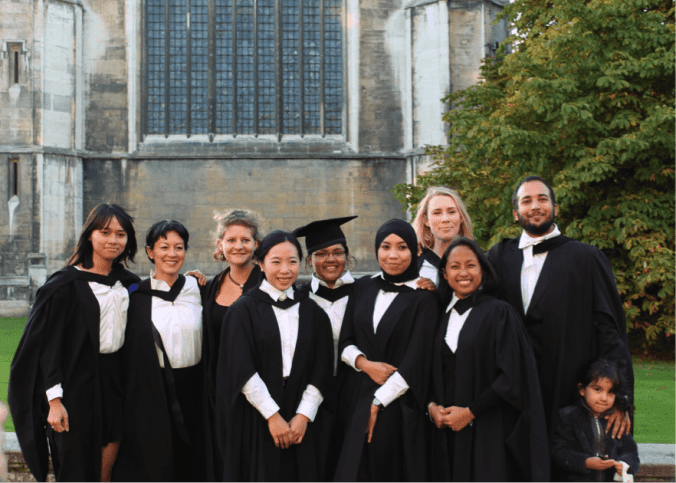Over the past fifty years, I’m the fourth Malagasy person to graduate from Cambridge and the second Malagasy woman! In 2014, I was very fortunate to be accepted to do the MPhil in Conservation Leadership at the University of Cambridge. I’m really grateful to Blue Ventures for widely sharing capacity building opportunities within the organisation, and having great managers that help colleagues with applications. The MPhil has also brought me to become one of Madagascar’s national experts on the Intergovernmental Platform on Biodiversity and Ecosystem Services (IPBES), where I try to represent the policy challenges we face in Madagascar, especially in the marine field.
My time in Cambridge was incredible! When you come from as far as Madagascar, where education is often within challenging conditions, experiencing a full year of high-paced learning within a remarkable study environment is very impressive. The 2013-2014 Conservation Leadership class was made up of 23 conservation practitioners from 20 countries. Exchanges on conservation practice were very rich and we learned so much from each other’s experiences. It was fascinating to learn that fishing communities, for example, face the same issues in Madagascar as in Mexico or Uruguay, and that local efforts are equally rewarding in those rather different settings. It was also amazing that many of my classmates and the people I met at conferences had heard about Blue Ventures’ marine conservation work in Madagascar.
During my year in Cambridge, I came to learn more about some of the issues we face as conservationists. The different debates: should we put a monetary value on nature? Should we work with big corporations? Should we eat meat/fish? Various interesting articles also came out, for example, one critiquing big ideas in international development, and one discussing the need for hope amongst conservationists. Those debates sometimes divided our already small group. It seems that despite the efforts that conservationists are trying to make, the majority of the world is not engaged in protecting nature and turn our efforts in vain.
However, I also learned that leadership is a big part of the solution. Each individual can be in charge of nature. As conservationists, our individual leadership can help to bring family and friends to understand the huge impact of small steps towards conserving nature (with ourselves complying with these steps first). We all, for example, need to fly less for less environmental footprint, avoid waste of food, stop trying to buy every new device that increases worldwide consumption of stuff. Malagasy fishing communities have demonstrated this kind of leadership in managing their marine resources, and I think we need to promote them in their enthusiasm. We need to support more of those empowering organisations, like Blue Ventures, that help coastal communities in fostering this leadership in protecting their marine environment.

Graduation day with 8 classmates from 7 countries and 4 continents!
This last year has been an enriching experience that has taught me to reflect more on our conservation actions. I encourage Malagasy conservationists to attend conservation classes abroad. The country needs pragmatic minds that are able to question the way we are trying to conserve our biodiversity and think about realistic solutions that work for people. Looking at our nation from outside is also a great experience that can help hugely in doing more for the country.

